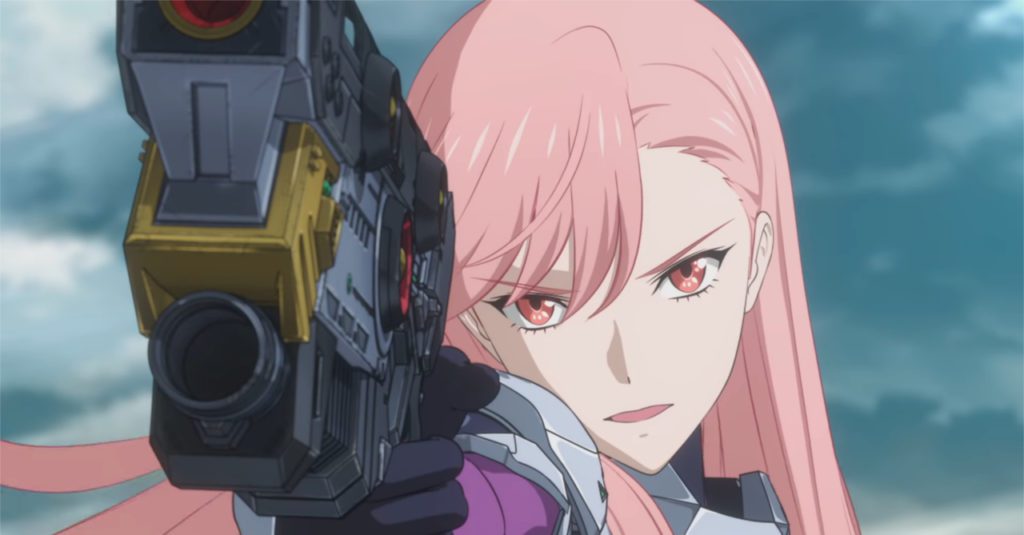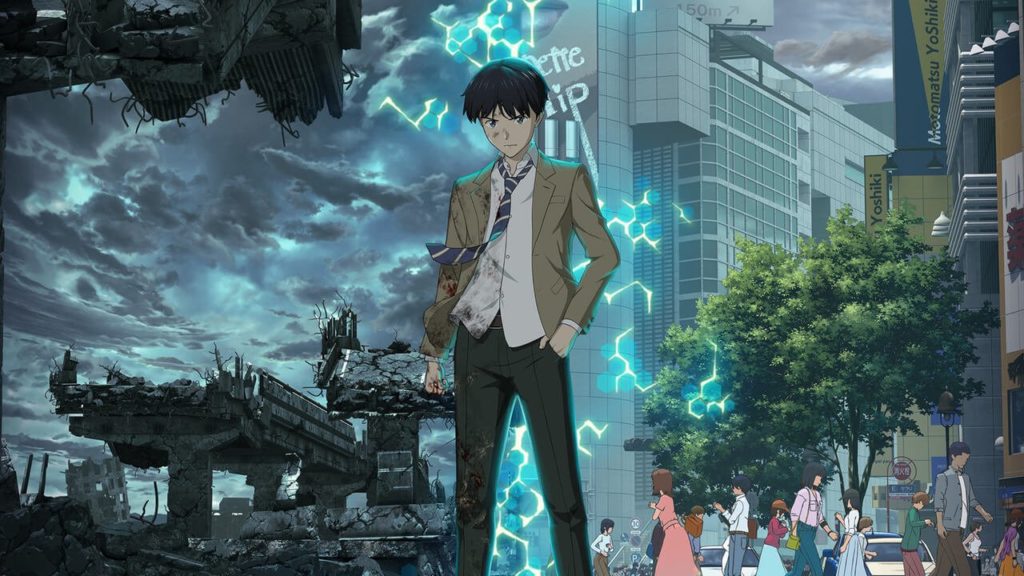Summary
Revisions feel like fairly standard fare that somehow manages to be inventive but incredibly familiar at the same time. It has some interesting ideas but some of the characters are really hard to root for at times.
Revisions feel like fairly standard fare that somehow manages to be inventive but incredibly familiar at the same time. It has some interesting ideas but some of the characters are really hard to root for at times.
I’m not really an anime expert, more of an enthusiastic amateur, but I was keen to see what the Netflix Original series Revisions had to offer. Based on my previous experiences, it feels like the plot of Revisions could have been generated by a random anime algorithm. There’s a prophecy, moody teenagers, time-travel, big monsters, and mecha suits. Oh and there’s a scantily clad woman with a tail and animal ears (rabbit I think), who may or may not be a furry.
Seven years ago Daisuke Dojima (K?ki Uchiyama) was kidnapped in mysterious circumstances because what other kind of circumstances are there? Four of Daisuke’s school friends get a cryptic message telling them where to find him and when they arrive they meet the enigmatic Milo (Mikako Komatsu). Milo is a terrible influence on these poor children as she goes on to fill Daisuke’s head with stories of him being the chosen one, destined to save them all.
Fast forward to the present day and suddenly the Shibuya is transported forward in time and under attack from giant mechanized monsters known as The Revisions. With the help of Milo, who now seemingly doesn’t remember them, Daisuke and his friends must defend the people from The Revisions with the use of mecha suits (obviously).
I watched Revisions with quite a cynical eye because the premise just seems to be so by-the-numbers, with pre-fabricated elements and characters just slotted into place. Despite all that, as the series progressed I couldn’t help but get drawn in.

The characters are hard work, particularly Daisuke, who is a carbon copy of so many anime ‘heroes’ before him. He’s a mean and moody teenager who has some sort of messiah complex, he’s so desperate to be the champion chosen to protect humanity that he doesn’t care about anything else. Ever since his first meeting with Milo he’s become obsessed with preparing himself for his destiny, like a more surly Sarah Connor. The extent of this preparation seems to be attacking random strangers who may have talked to or cycled too close to his friend Marin Temari (Manaka Iwami). Basically, he seems like something of a d******d. An unstable and unlikeable whiner. The rest of his friends just seem to be along for the ride, with no real discernible traits.
The story itself is twisty, turny, timey-wimey silliness about pandemics, time-jumping, corrupt self-serving governments, and ambiguous baddies. I had more than a few eye-rolling moments during the course of the series but I still couldn’t help but be hooked into it.
Revisions does a good job of building a world, even if it is an overfilled and confusing place to be. It’s almost as though the creators are just throwing as many concepts as possible at the wall to see what sticks, but perhaps less would have been more. The mecha suits and The Revisions are nicely created, just familiar enough to be recognizable but also different enough to seem fresh-ish.
The action is actually pretty good – who doesn’t want to see giant cyborg-monsters fight mecha suits? The design of The Revisions and the mecha suits is again familiar but functional.
As a casual anime fan (at best) I thought that against all of the odds, and my brain’s better judgment, Revisions was quite good fun. I really can’t get on board with the main protagonists but I think that the story is juggling so many balls that it’s worth watching for that alone. It’s almost like I was watching it with a sense of incredulity, as I waited to see what other ingredients they were going to throw into an already over-seasoned stew.



